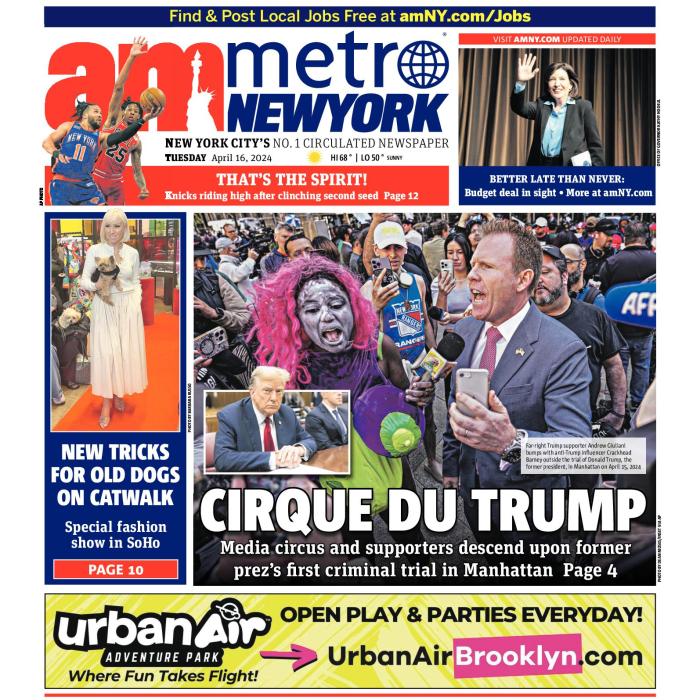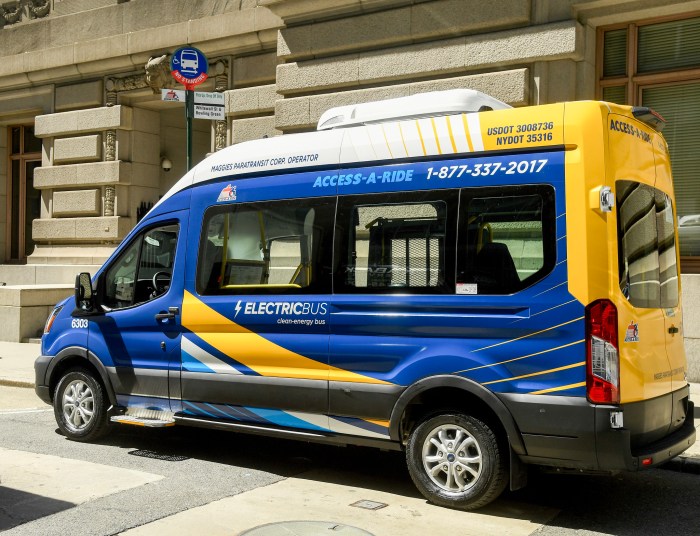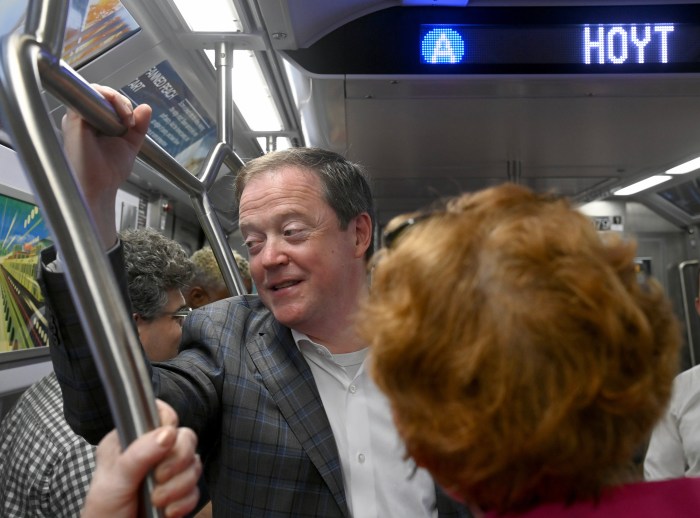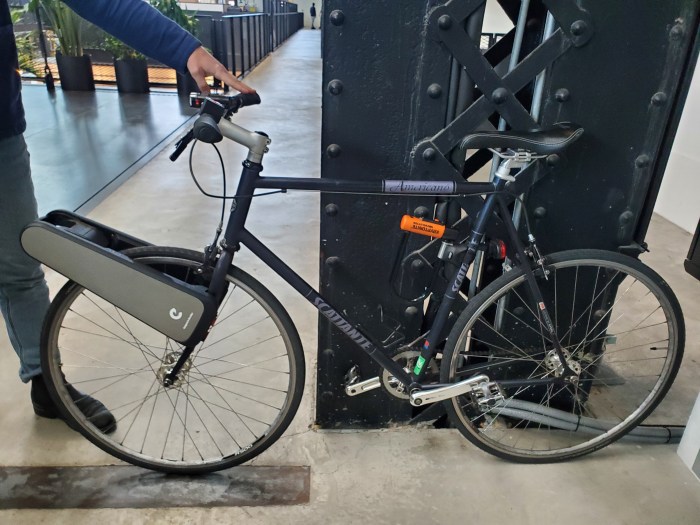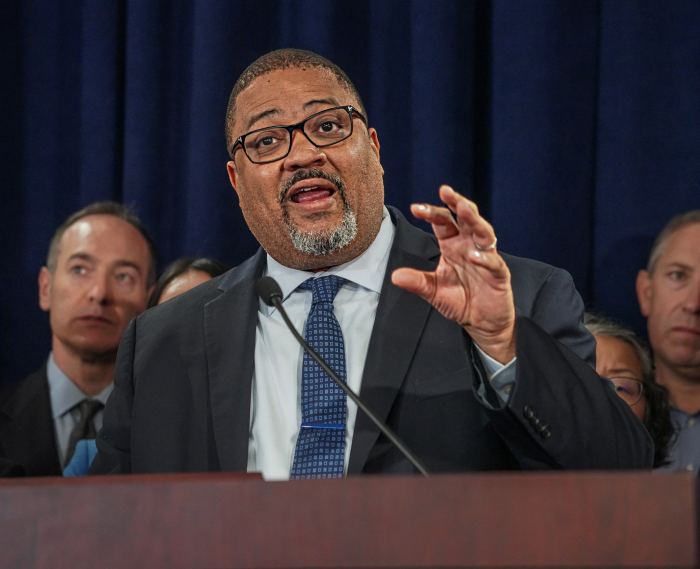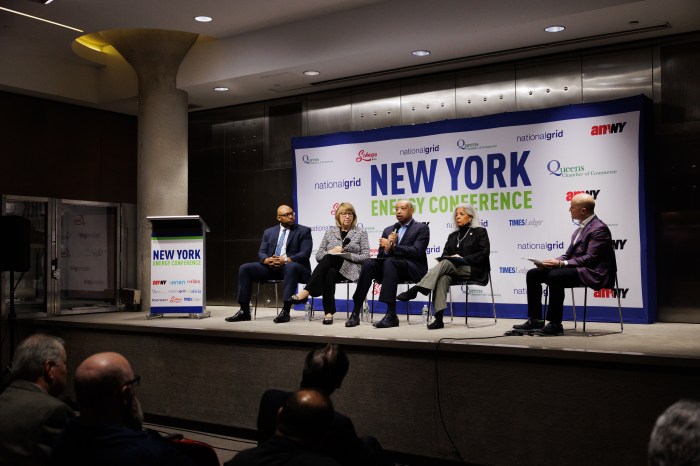
City Council Speaker Corey Johnson sharply criticized the 14th Street busway Monday as the city project to improve bus service continues to be held up by litigation.
The busway would ban through-traffic on most of the busy Manhattan corridor to accommodate the street’s 26,600 daily bus riders. Though the city has studied area traffic volumes and believes nearby side streets can appropriately absorb diverted traffic from 14th Street, Johnson asserted the plan was drafted in a “piecemeal” fashion that could threaten safety on those roads.
“I’m afraid that if you have the box blocked on these side streets and cars can’t turn because the block is totally backed up going across town, then it’s going to create unsafe conditions for pedestrians, for cyclists, for people who live on those blocks,” Johnson said during an appearance on WNYC’s The Brian Lehrer Show. “That’s what I’m concerned about.”
The Council’s leader and likely mayoral hopeful has spoken tirelessly about the need to “break the car culture” in New York City, but backtracked when the city planned for a transit-friendly project in his district. Johnson, who represents some of the most outspoken busway detractors in Chelsea, argued that his legislation to require the city to develop five-year master plans for street redesigns would quell such fierce opposition to projects favoring bikes and buses because the city would have a more holistic road map to wean residents off car dependency.
“One of the difficulties is when we make these decisions in a piecemeal way, people feel like it’s being put on them and there isn’t a master-plan-like approach — where this is going to get done in a way that’s going to benefit them and the entire city,” Johnson continued. “And that is what we need to balance here.”
After denouncing the busway over the airwaves, Johnson issued a statement later in the evening attempting to clarify that he supported the project as a pilot. The speaker added that the city agreed to his suggestion to "hire a third-party firm that will help monitor this pilot and collect and analyze data."
"This will provide concrete data in real time on what is working and what needs to be adjusted during the pilot," Johnson continued in his statement. "I will also make sure that traffic agents are in the community strictly enforcing all traffic laws to protect pedestrians and cyclists, and ensure this goes as smoothly as possible. When this pilot is over, we will know what worked and what didn’t. We need to use this opportunity to come up with a permanent solution to improve the way people, especially bus riders, get across 14th street."
The busway was conceived during the now-scrapped full L train shutdown and was slated to launch on July 1, but has been twice delayed by legal challenges from block associations in the wealthy neighborhoods lining 14th Street. Residents filed a last-minute lawsuit before the launch, effectively delaying the project by more than a month until a judge struck down the petition last week.
Plaintiffs initially failed in arguing the same safety concerns that Johnson voiced Monday; that the project required an environmental review; and special consideration for the surrounding historic neighborhoods. But as the city moved to implement the busway this week, those residents again filed a last-minute appeal to hold up the project further.
The street’s M14 bus is one of the busiest routes in the city while also being one of the slowest; and the city hopes that creating priority for buses and deliveries on the street can improve bus speeds by 30%. Advocates have estimated, using those calculations, that one month without the busway translated to a year’s worth of lost time for rush-hour commuters stuck in heavy traffic.
The city has expected a roughly 50% increase in traffic on 12th, 13th, 15th and 16th streets during the hours of 8 a.m.-10 a.m. and 5 p.m.-7 p.m., but it believes side streets have the necessary additional capacity. That traffic increase equates to an average rise from roughly 3.7 cars every minute to 5.6 cars every minute on each of those streets.
“The 14th Street busway is well-planned and urgently needed,” tweeted mayoral spokesman Wiley Norvell shortly after Johnson’s remarks. “Every day of delay caused by pointless litigation costs thousands of bus riders lost time they’ll never get back.”
